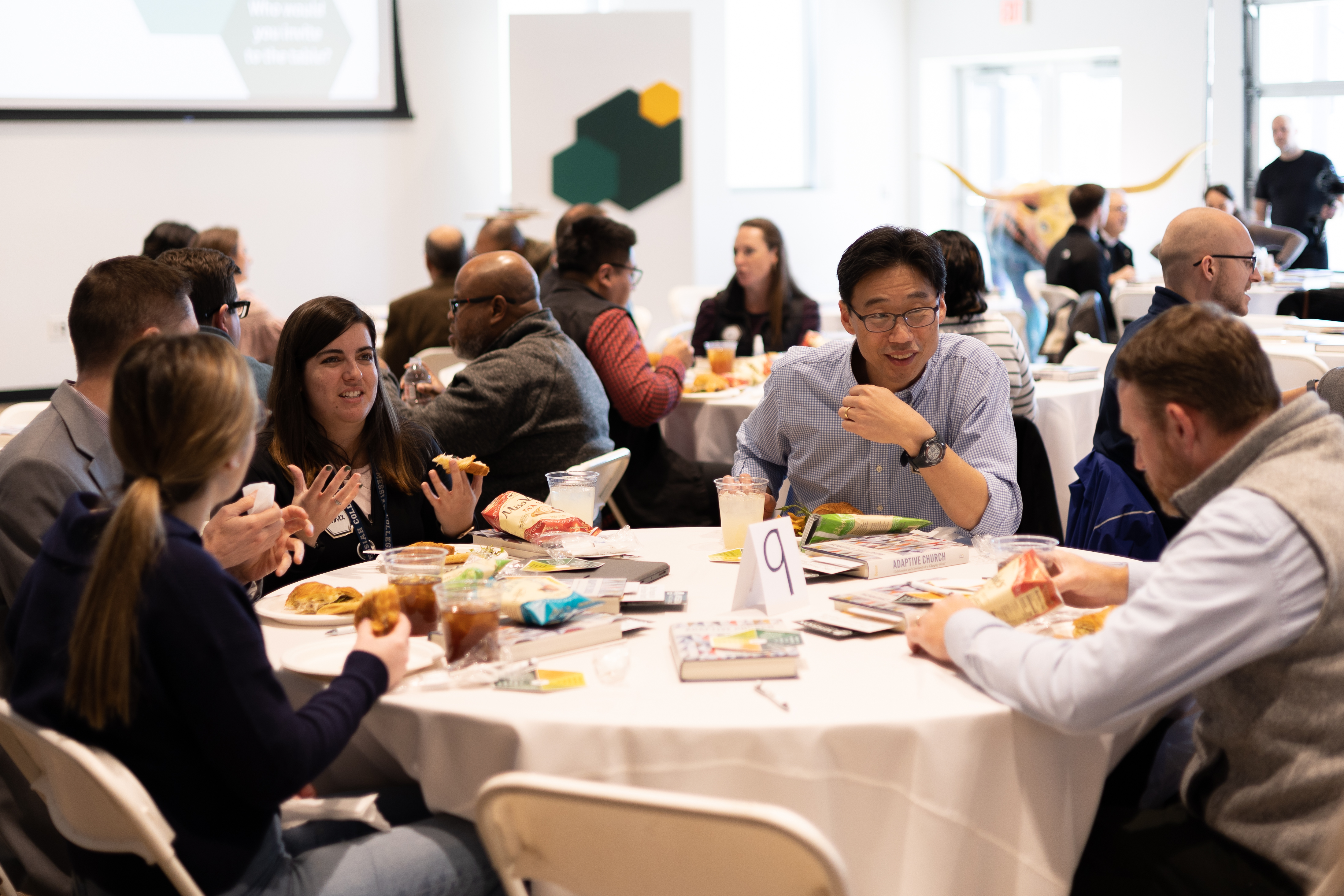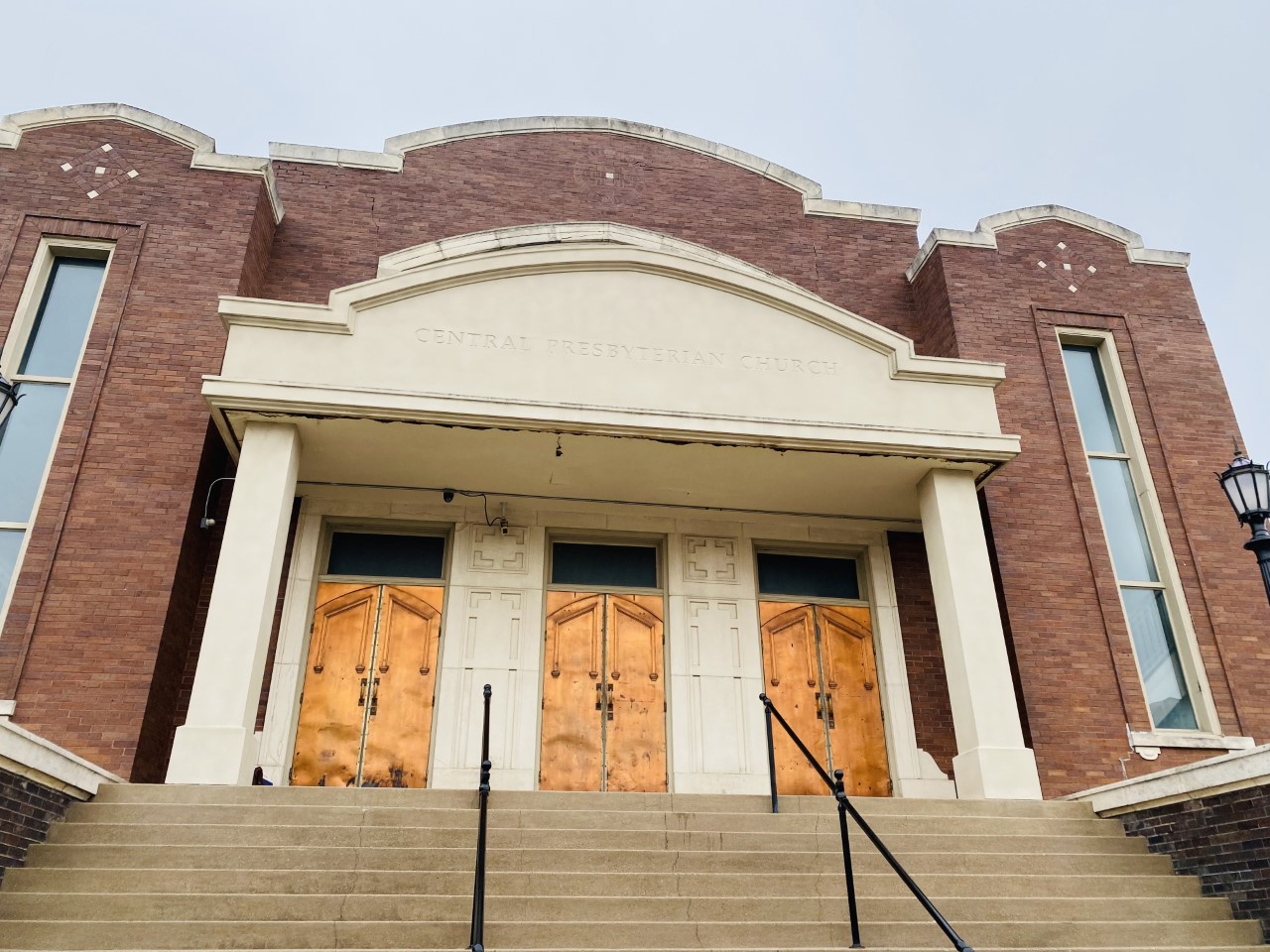Collaboration and Contextual Engagement Provide Pathway for Expanding Work at Truett

Waco, TX (November 16, 2023)–Amid the changing landscape of ministry and congregational life, the Program for the Future Church (PFFC) at Baylor University’s Truett Seminary exists to bring together theologians, churches, and community leaders to create time and space for listening and imagining in order to create resources to support the future of the Church. Over the last year, the PFFC has prioritized collaboration and contextual engagement to transition the piloted initiatives launched during the first phase of its work into public facing convenings, courses, and collaborative opportunities. “Our process prioritizes listening and partnership in order to develop research and resources that support local churches,” said Dustin Benac, ThD, director and co-founder of the PFFC. “After a year of listening and testing programs and initiatives, we were thrilled to transition to a more public phase.”
Four public-facing gatherings over the last year advanced the PFFC’s mission as a theological research, resource, and relationship hub:
1. The Ministry Partner Gathering
The PFFC’s annual Ministry Partner Gathering allowed for a time of celebration that fosters connection and collaboration. The inaugural Ministry Partner Gathering marked the public launch of the PFFC and invited local pastors, community members, and students to shape the future of the program’s work. Hosted at Art Center Waco, this gathering invited participants to identify both the challenges they face in ministry and the hopes that guide their work.
"It was great to be with other people that are in ministry positions throughout our city, trying to think about how we can creatively make an impact on those around us."
The Ministry Partner Gathering provided an opportunity to connect with colleagues and meet new ministry leaders, helping to build new relationships to support the local church network.
2. Contextual Research Hub
The PFFC’s Contextual Research Hub was a place to investigate shared crises and challenges in ministry and to ground exploration, ideas, and research in the participants’ own ministry contexts. During each hub, students, local pastors, nonprofit leaders, and Baylor researchers gathered together for interdisciplinary and collaborative inquiry. This past year was organized around the theme of belonging, and participants read and discussed several texts by theologians, social scientists, and organizational leaders that informed reflections rooted in their own specific context. Additionally, the group met in different physical locations each time in order to think about how space, place, and imagination all affect a culture of belonging. Participant feedback identified the formative function of these places. “We were able to move to different locations that allowed for us to refresh and concentrate on things we had not previously considered,” one participant shared. Another reflected: “I enjoyed being in different spaces and thinking through how that impacts our conversations.”
The Contextual Research Hub aimed to produce resources and conduct research. To this end, the research hub piloted an open-source reading and discussion guide about belonging to support discussion in churches, nonprofits, and faith-based organizations. Additionally, several participants co-authored a peer-reviewed journal article based on their learnings, and others are contributing to a forthcoming edited volume about belonging.
3. The Exploratory
Mindful that the need for collaboration and contextual research is not restricted to the Waco community, the PFFC launched an online learning community, The Exploratory, to provide an online forum for discussion and connection beyond central Texas. The Exploratory investigated the theme of belonging over three months by discussing several resources and hearing from experts on the topic. For example, the participants in The Exploratory considered how belonging intersects with the land and ecology, disability, racial identity, hiring practices, nonprofit ministry, and congregational leadership, among other topics.
Without predetermining the outcomes, The Exploratory sought to create the conditions for participants to determine the next faithful step in their local context and community. As one participant shared, ““I have found myself referencing content from the books and discussions regularly with colleagues, and they encourage me to continue pursuing my reading and thinking so that we can dream of ways to increase belonging in our space(s). The content has certainly inspired me to take ownership as a change agent in these spaces.””
4. Collaboratory
The PFFC hosted its annual Collaboratory in September 2023 around the theme of Collaborative Leadership. The Collaboratory gathers teams to engage and respond to a complex crisis in ministry and society. As a two-day event, this collaborative laboratory was designed to create connections, clarify presenting crises, develop shared language, and elevate individual and collective imagination. Following a year of research and convening on belonging, this event signaled a transition to the next cycle of the PFFC’s work: addressing the crisis of loneliness in leadership.
Reflection: CAREY SIMS, Cliff Temple Baptist Church
“What a gift of time well spent! The Collaboratory created space for honest reflection, deeper friendship, and important connections to take place, both in our team and around the room. I never felt rushed or stressed about arriving, but instead, was able to trust the process and allow the next right steps to unfold. There was deep value in providing a space for leaders to be led in such a thoughtful way. This is a must for leaders and teams who can glimpse the future yet know they cannot make it alone.”
The broader Waco and Baylor community also had an opportunity to explore this theme through a public conversation at the Armstrong Browning Library about the practice of collaborative leadership. Dustin Benac interviewed Shannon Hopkins and De’Amon Harges, about the collaborative sensibilities that ground their work.
The Program for the Future Church is building an intellectual community through these and related offerings, courses, and research opportunities. If you would like to follow the conversation and learn about future opportunities to join an Exploratory, participate in a Research Hub, or nominate a team for next year’s Collaboratory, please sign up for the Future Church Fieldnotes.
If you would like to support this work by providing financial support, you can contribute to the PFFC’s ongoing work by making a gift here or by contacting Dustin Benac at Dustin_Benac@baylor.edu.

